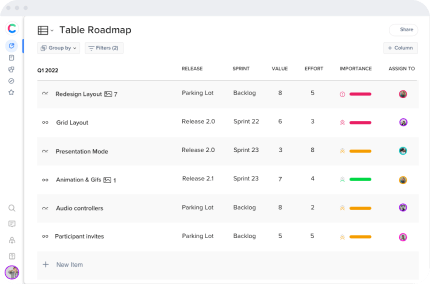What is the first mover advantage?
A corporation that is the first to launch a product or service to the market gains a competitive advantage known as the first-mover advantage. A company’s first-mover advantage can create significant brand awareness and product/service loyalty ahead of rival market entrants.
It’s vital to emphasize that the first-mover advantage only applies to significant businesses initially entering a market. Amazon, for example, was not the first company to sell books on the internet. It was, nevertheless, the first company to acquire significant scale in that industry.
The Benefits of Being the First Mover
● Companies that are early adopters can become the industry standard for their goods.
● Ability to reach out to customers initially and leave a lasting impression, leading to brand awareness and loyalty.
● They may exert control over resources by locating their headquarters strategically, negotiating a premium contract with essential suppliers, or acquiring skilled personnel.
● When consumers have a high switching cost to switch to later arrivals, they might gain an edge.
How First Movers Affect the Market
Leadership in Technology
First movers might make it more difficult for later entrants to copy their technology, product, or services. For example, if the first mover can lower the cost of manufacturing a product (the “experience” curve effect), the first mover can have an absolute cost advantage. Furthermore, filing for patents provides protection and establishes the first-mover advantage.
Resource Management
The ability to control strategic and precious resources is the second benefit. Wal-Mart, for example, was able to put its stores in tiny communities and keep competitors out of the market.
The cost of switching Buyers
The third advantage that first movers may have is the expense of buyer persona and switching. If the initial company succeeds in establishing itself, switching to a different brand afterward may be inconvenient for customer feedback.
First Mover Drawbacks
● Being the first in a field does not automatically imply a competitive advantage.
● The first mover may spend a lot of money convincing customers to test a new product. Later entrants would profit from these well-informed shoppers and save money on consumer education.
● Later entrants can learn from the initial mover’s blunders.
● Later entrants can take advantage of the failure of the first mover to grab people with their products.
● Later entrants can reverse-engineer innovative items to improve or lower their costs.
The First-mover Advantage?
Marketers use the term “first-mover advantage” to describe a company’s competitive advantage by being the first to offer a product or service. Adverts and other brand messages can assist customers in understanding what the product is, how to use it, and why they need to buy it, which can help a business flourish as a first mover. This is especially true if the first mover proposes a concept that necessitates novel or unusual client behavior, such as Netflix.


